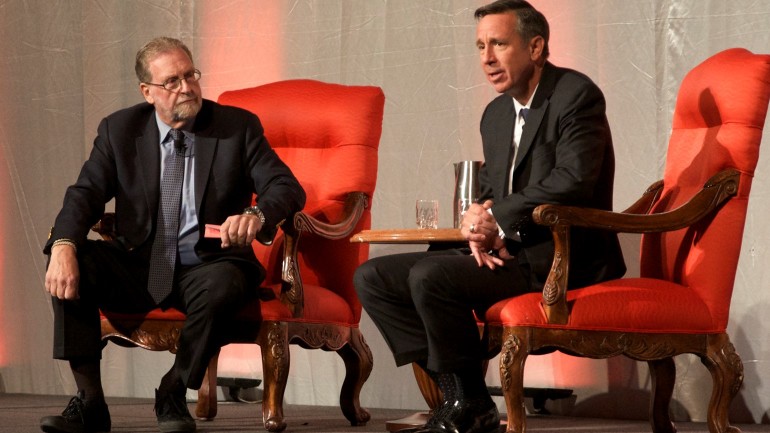Sponsored Listings:
RENO, Nev. — Marriott International plans to continue to engage in dialogue with the travel agent community after its acquisition of Starwood Hotels & Resorts to ensure the company has a strong relationship with the trade, CEO Arne Sorenson told Travel Weekly during the ASTA Global Convention here.
Sorenson — fresh off addressing convention attendees and accepting ASTA’s Hotel of the Year award — was asked about Marriott’s relationship with the agency community, as well as Starwood’s, which has historically been viewed by some as more agent-friendly.
“I guess that’s not my perception coming into this,” Sorenson said. “I think our relationships with the travel agent community are excellent — not without bumps every now and then, but excellent.”
As to why Starwood may have been perceived as more agent-friendly, Sorenson speculated it could have been down to individuals’ relationships with the company, the company employees they have dealt with or a variety of other factors.
“At the same time, we want to make sure doing this deal that we’re keeping our relationships with our customers that are important, and the relationships we have with travel agents are relationships with customers, so they’ve got to be tended,” he said.
The Marriott-Starwood deal is not closing with definitive answers as to the way the company will pay commissions or what its loyalty program will look like in the future, Sorenson pointed out.
“So I think we’ve got to be engaged in dialogue with the travel agent community and say, ‘OK, tell us what it is, those of you who, if you preferred Starwood, why did you prefer Starwood? What are you worried about losing? How do you compare the relationships we have with you?’” the CEO said. “And go through that in a way which is thorough and participatory and transparent. Hopefully we come up with a place that is good, strong relationships for us across the portfolio.”
That will be accomplished by keeping the process conversational, he said.
Sorensen did caution, though, “that doesn’t necessarily mean that every decision will be loved, but hopefully we will understand each other perfectly before those decisions are being made. And we want the travel agent community to feel good about this.”
As to the future of Marriott-Starwood’s loyalty program, Sorenson said it’s too soon to tell exactly what it will look like.
While there is “strong functionality between the two programs today,” there are many factors that could affect the future. For instance, Sorensen said, the two programs have different rules for guests to follow and they utilize different technology programs, among other things.
“All of that has got to get addressed in what’s likely to be a many-months-long process, maybe a few years,” he said. “It’s hard to know, exactly, and at the moment it would be too much to say we know exactly what that looks like at the end of the day.”
Earlier in the day, Sorenson had addressed a crowd of convention attendees during a discussion with travel journalist Peter Greenberg. Among other topics, he reflected on the close of Marriott’s $13 billion acquisition of Starwood, which had just occurred last Friday after a nearly year-long period the CEO called “a little bit of a roller coaster.”
From the time that Marriott initially expressed interest in Starwood, China-based Anbang Insurance Group made rival bids for Starwood, which Sorenson called “the most notorious piece” of Marriott’s acquisition process. The first rival bid came in March, and nobody saw it coming.
“We were just starting to get relaxed that we were going to close, and we were just a few weeks away from our shareholders’ meeting,” Sorenson recalled. “Nobody had surfaced with a bigger bid.”
That’s exactly what Anbang did, though. After Marriott increased its offer, Anbang responded with a higher one, and it likely would have eliminated Marriott had Anbang not withdrawn it.
“If [Anbang] had delivered against that, they would have ended up owning Starwood, but for reasons we will never really know, they withdrew,” Sorenson said.
Instead, Marriott ended up being the winning bidder, bringing its total number of brands to 30.
Last week, Marriott said it would keep all 30 brands. Sorenson discussed that decision at ASTA, saying the company wants to “make sure we draw good swim lanes between each of these brands so people understand something about them, what they stand for.”
He also addressed a topic that has been a touchy one amongst agents: hotel companies’ direct-booking campaigns.
“The popular perception when you go out and ask a customer where do you get the best rates on a Marriott hotel, the answer is one of the OTAs, even though the rates are exactly the same,” he said. “[It’s] because they have spent hundreds of millions of dollars marketing the notion that their rates are lower than other rates.”
To fight that perception, hotel companies have chosen to institute direct-booking campaigns, he said.
Sorenson drew applause from the room when he hit on the topic of nationalism.
“That, to me, is the bigger threat in terms of the impact to travel than terrorism by itself,” he said, with some world politicians blaming enemies and calling on strengthening their country’s borders as a result.
If the United States still had the same share of global travel today as it had before Sept. 11, 2001, Sorenson said the country would have an average of 35 million more visitors from abroad annually. Therefore, it is incumbent upon prominent voices to communicate to the global community that America wants them to visit.
“I won’t get political in this room,” Sorenson said. “I will not endorse anybody, but when the rest of the world sees our politicians say just the opposite — you’re not welcome, don’t come, we’re going to close the door, nobody gets it — he’s getting attention all around the world. He’s not paying for it, but it is directly against the interest of everybody in the travel industry.”
Sourse: travelweekly.com










